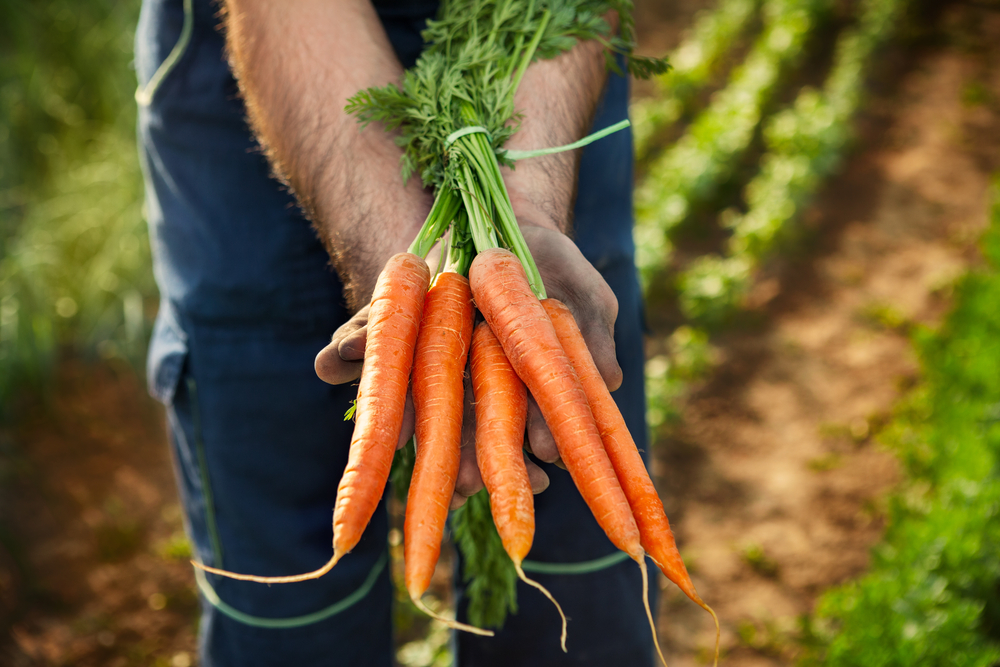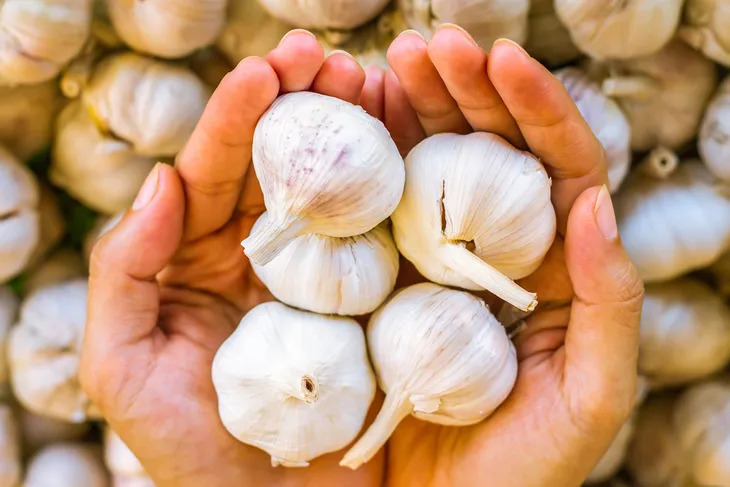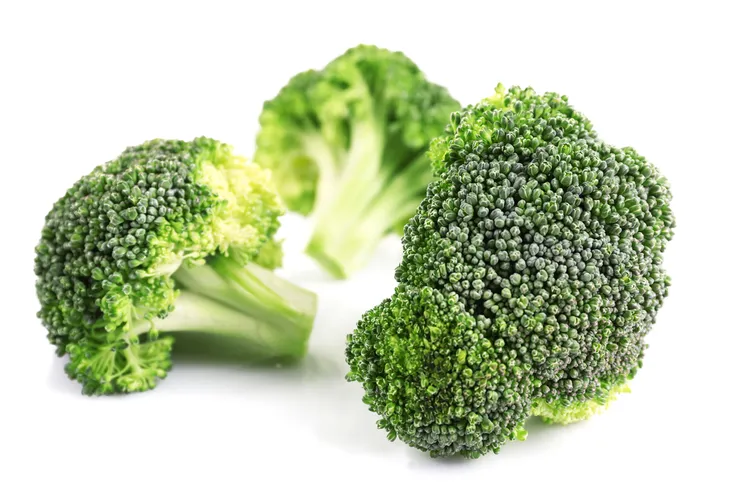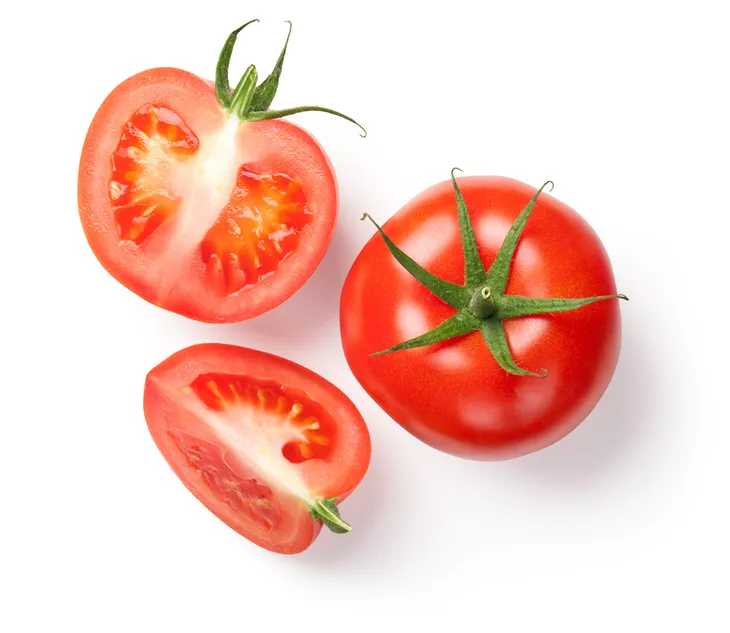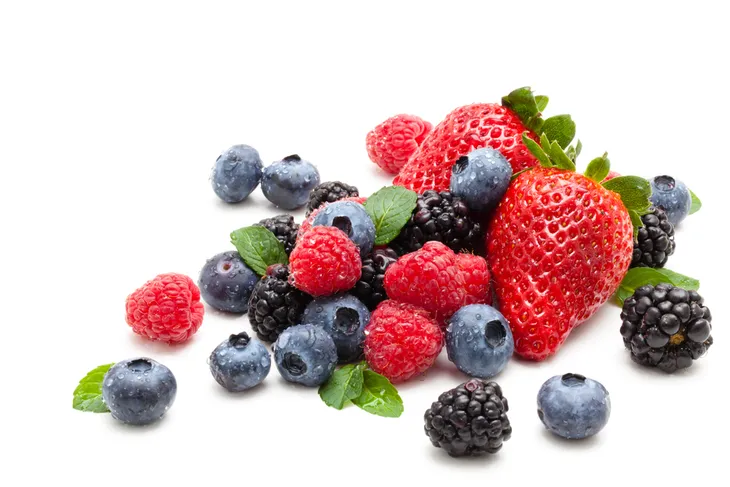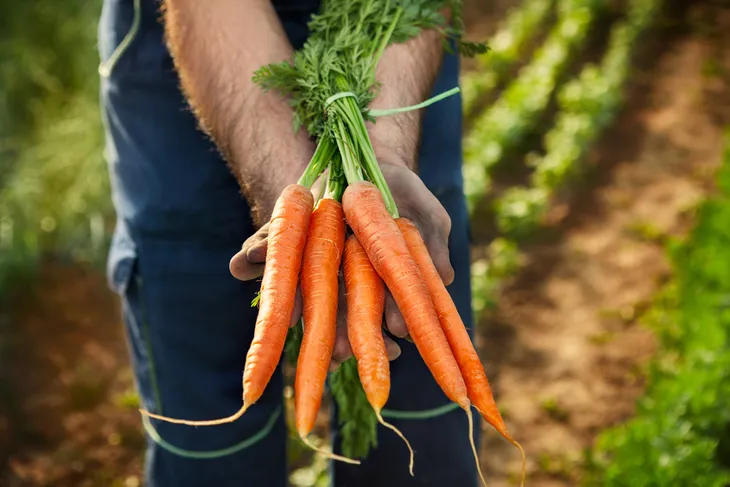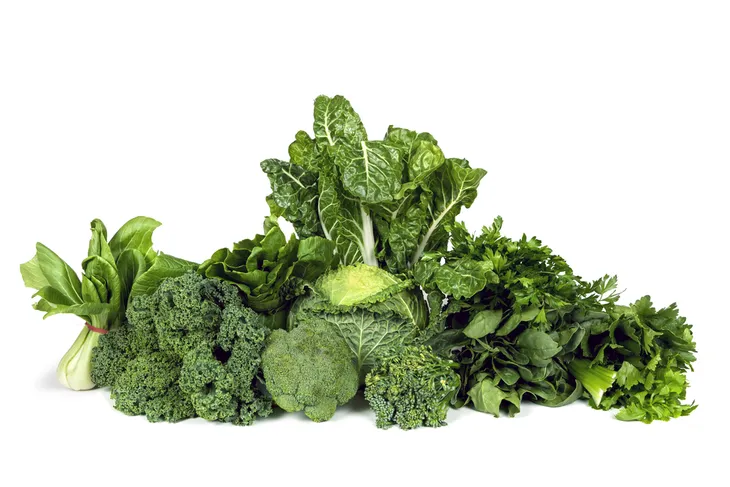What we eat plays a large role in our overall health, and overconsumption of certain foods—such as those high in fat or sugar—can eventually lead to illness and disease. Fortunately, food can also be used to treat health concerns or, in some cases, even prevent them altogether.
In fact, when it comes to cancer, studies suggest that 30- to 40-percent of all kinds can be prevented with healthy lifestyle and dietary measures. Particularly beneficial for reducing the risk of cancer are foods rich in certain vitamins, antioxidants and carotenoids—of which these six are excellent sources.
1. Garlic
We love garlic for the great flavor it adds to almost any meal, but garlic breath…not so much. Interestingly, it’s the sulfur compounds that cause garlic breath that, according to WebMD, can help to “stop cancer-causing substances from forming in your body, speed DNA repair, and kill cancer cells.” Garlic is also effective at fighting bacteria connected to stomach cancer, and has proven to reduce the risk of colon cancer.
For maximum benefit, the source recommends letting the cloves sit for 15 to 20 minutes after they’ve been peeled and chopped, as this process “activates enzymes and releases the sulfur-containing compounds that have the most protective effect.”
2. Broccoli
A cruciferous vegetable, broccoli contains a compound called sulforaphane, which “boosts the body’s protective enzymes and flushes out cancer-causing chemicals,” says Health.com. The source also adds that a study out of the University of Michigan has found that sulforaphane “targets cancer stem cells—those that aid in tumor growth.”
Broccoli—and other cruciferous vegetables like cabbage, kale and cauliflower—has proven most effective at protecting against cancers of the mouth, esophagus and stomach. But be sure to eat it raw or steamed, as microwaving has been found to destroy most of its cancer-preventing benefits.
3. Tomatoes
Tomatoes owe their luscious red color to a phytochemical called lycopene, an antioxidant of which tomatoes are the richest natural source. Not only has lycopene been linked to a reduced risk of prostate cancer, it has also been shown to stop the growth of certain cancer cells, such as breast, lung and endometrial.
To benefit most from lycopene, tomatoes should be eaten cooked or processed—such as in tomato sauce—as the heating process increases the amount of lycopene available for the body to absorb. For additional sources of this compound, seek out watermelon, pink grapefruit or red bell peppers.
4. Berries
Berries are among the best sources of antioxidants, which, according to Reader’s Digest can neutralize free radicals—“unstable compounds that can damage cells and lead to diseases including cancer.”
Strawberries, for instance, contain antioxidants like vitamin C and ellagic acid. The latter offers cancer-preventing properties that boost enzymes, which WebMD says can “destroy cancer-causing substances and slow the growth of tumors.” The source adds that strawberries also contain flavonoids, “which suppress an enzyme that damages DNA and has been linked to lung cancer.”
5. Carrots
Carrots are yet another excellent source of potent antioxidants, including the carotenoids alpha carotene and beta-carotene. Beta-carotene is believed to help slow cancer cell growth, as well as protect cells from damage caused by toxins.
In recent studies, however, alpha carotene has proven to be even more effective than beta-carotene for preventing and fighting cancer. As cooked carrots provide more antioxidants than raw, WebMD recommends steaming them whole and cutting afterward to preserve nutrients.
6. Leafy Greens
No only are leafy green chock-full of important nutrients like fiber, iron and calcium, they also contain several cancer-preventing properties. Spinach—as well as other greens like kale and Swiss chard—is an excellent source of the antioxidant lutein, which prevents free radicals from causing damage by eliminating them from the body. Lutein has shown beneficial in preventing cancers of the mouth, esophagus and stomach.
Vitamin C and beta-carotene are also found in leafy greens, but antioxidants aren’t the only benefits they have to offer. Greens are also sources of glucosinolates, which are broken down during food preparation, chewing and digestion to form compounds like indoles and isothiocyanate, which have been found to inactivate carcinogens and inhibit tumor formation and metastasis.
